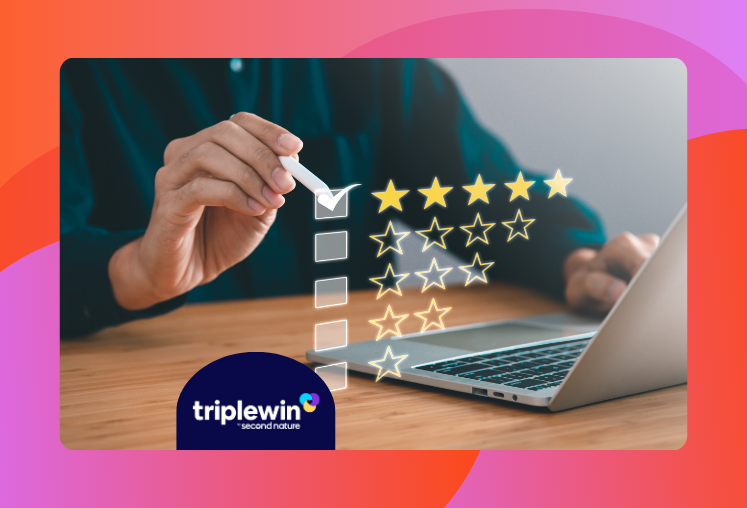What we'll cover
The Triple Win = long-term growth and success
What is a Triple Win?
A Triple Win is a simple but effective concept in property management in which everyone benefits. There are three parties that are involved in a property management transaction: The investor, who owns the property and is seeking a high return on investment. The property manager, who manages the property for the investor and is seeking to grow a successful business. And finally the resident, who lives in the property and is seeking a great living experience. A Triple Win is the concept of each party accomplishing all of these things at once.
Solutions like Resident Benefits Package (RBP) and Investor Benefits Package (IBP) spring from this value-generating mindset.
Why is it important?
The Triple Win is a relatively new idea in the PM space, but it’s quickly becoming the cornerstone of industry-leading businesses. This is because property management as a whole is becoming commoditized. The service of managing properties is getting harder and harder to differentiate from other providers. This trend eventually ends in a state called “perfect competition”, where consumers (in this case investors) don’t perceive differences between the offerings of different companies and are likely to select the cheapest option. Throw in the growth of single family property management software that investors can operate themselves, and the need for a basic property management service in the future rapidly declines.
Not surprisingly, the key to success in the future is to provide something better than a basic property management service. This is where the Triple Win comes in by providing real tangible value to all parties to create an experience that cannot be matched by old-school companies and software.
The Triple Win is important because companies that fail to evolve with this changing industry will be left behind and eventually go out of business. Creating a Triple Win is a fool-proof way to ensure the evolution of your business.
How do I create a Triple Win?
Pt. 1. The investor
JWB Real Estate Capital was one of the first property management companies to identify the long-term value of the Triple Win. The business is built around the idea of helping real estate investors achieve the highest possible ROI, and it does this by creating a Triple Win that keeps ROI high for investors via low vacancy rates and other costs.
This concept has led to a number of practices that help achieve that goal including some that actually subtract from JWB’s short-term profit. One of these is the long-term lease, which cuts the income JWB receives from tenant placement fees pretty dramatically. However, this creates a lot of value for the investor, whose vacancy and tenant placement costs are much lower. JWB also works closely with their clients to create a detailed plan for real estate investment that’s designed to maximize the investor’s ROI. It’s a property management company, but a lot more than property management is going on here. That’s the key.
It’s this excellent experience JWB provides that drives business from long-term investors, which adds sustainability to the business model. It’s differentiated and it creates unique value, so the short-term profit decrease is offset by the growth and retention of clients that understand the benefits of working with JWB can’t be matched by any old run-of-the-mill PM business.
Auben Realty has built their literal company structure around experiences that create a Triple Win. They employ Investor Experience Managers and Resident Experience Managers to enable clear communication and quick action on the needs of both other parties. Again, this is differentiated and creates unique value that an investor won’t typically realize from a scaled company that is still operating with a basic service.
Creating a Triple Win for the investor is about creating value. Ask yourself right now, “what am I doing to help my clients achieve maximum ROI?” and, “what am I doing to make communication as easy as possible and streamline the real estate investment experience for my clients?” The value they perceive from you simply managing their properties is dying, so you need to create value beyond that in order to build a business that’s worth the cost to employ.
Pt. 2. The resident
So what about the resident side of this? Recall that JWB’s long-term lease decreases vacancy costs for investors. Vacancy doesn’t just create costs though, it’s unrealized profit if nobody is paying rent. So vacancy, not surprisingly, is the number one thing your investors want to avoid, meaning resident retention becomes a priority. This is why resident experience has become a key term in property management. The best way to decrease vacancy is to provide a resident experience so great they don’t want to leave the property.
"So traditional property management, we’re focused on the investor. That’s our client. The resident pays rent. If you don’t pay rent, we’ll find someone else who can. We wanted to kind of think outside the box there and say ‘okay, the resident is important in investing because if we can decrease vacancy and reduce turnover and keep the residents happy, they’ll stay in our properties for long periods of time and ultimately increase the investor’s return as well.’” - Auben Realty CEO Phil Vera
Providing an exceptional resident experience is challenging, but this is really where property management companies can differentiate themselves and create something that commoditization can’t touch. You can’t really commoditize an experience, and a devoted team of property managers that can create such an experience for residents will decrease vacancy rates to a point where investors have no choice but to work with a professional PM if they want to maximize ROI.
The industry-leading method for resident experience is RBP by Second Nature. Ancillary income programs like RBP can help create a fantastic resident experience by offering real valueIt takes all the work out of creating and managing a great resident experience. RBP is a suite of services that property managers can purchase and add to a rental agreement for the express purpose of creating that unmatched experience. Every single one of these services is managed externally for you by Second Nature. You don’t have to do anything. It’s so simple to implement, it’s not even plug-and-play. It’s just... plug.
Resident Services within RBP by Second Nature include things like Rental Rewards, which make residents feel valued by management and also incentivizes on-time rent payment for the investor. Programs like identity protection and credit building are great tools that many residents wouldn’t otherwise have access to. Even one-call utility setup creates a great resident experience, as getting all the utilities working for a property can certainly be a hassle, and efforts to make settling into their new home easier are rarely lost on residents.
Pt. 3. The property manager
Happy residents and happy investors lead to happy property managers. RBP creates a great resident experience that ladders up to the investor’s experience, all of which benefits the PM in the end. That’s the Triple Win in a nutshell. The PM is focused on the needs of the client and the resident, and everybody wins as a result.
This is the future of property management. External pressures on the industry have made it so. Creating a Triple Win creates value that can’t be realized in any way other than working with a professional property manager. That’s how you escape the grasp of commoditization and technological innovation, and companies that don’t orient themselves towards a Triple Win will be left behind.
Topics:




